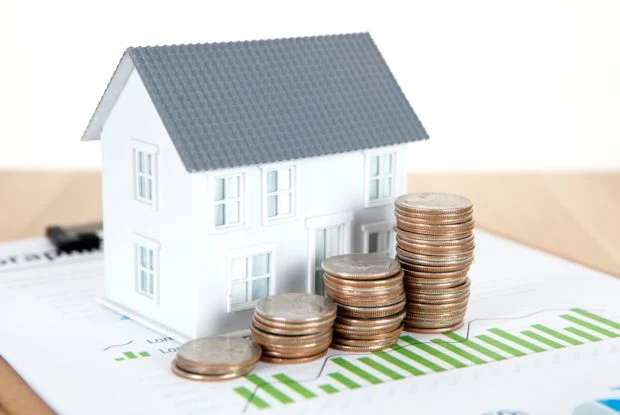Real Estate Matters
By Elisa Jo Eagan
Цhen most people think about buying a home, they think about neighborhoods, paint colors, and wish lists, not paycheck stubs and closing costs. However, in reality, you will probably find that the mortgage application and approval is one of the more time and energy-consuming aspects of the purchase process. Work your way through this list to make sure that you are prepared for the times ahead and your journey to the closing table.
- Check and Repair Your Credit
When you first start thinking about buying a home, you will want to do a deep-dive into your credit. Check into the three reporting agencies (TransUnion, Experian, and Equifax). Each may have different information about you.
If there are errors on any of your credit reports, many times a mortgage lender will be able to assist you to suggest how to correct the information. If your credit is just not great, there are ways to improve it.
If you don’t have much credit, look for ways to build your credit record. Seek out a starter credit card. Make regular, small charges and pay them off immediately. Look for programs that report your current rent and utility payments to the credit bureaus so you can use your on-time payment record to build your credit score.
If you have damaged credit, work on paying down existing debt and making on-time payments going forward. If you pay your rent and utilities on time, seek out reporting programs to allow you to use your positive payment history to rebuild your credit score.
As you pay off credit cards and loans, don’t close out the accounts. Leave them open and at a zero balance, or use them for occasional, small purchases that you then pay off immediately. Try to use no more than 30 percent of your available lines of credit; it will help increase your credit score. Also, part of your credit score comes from the length of time you have had your accounts so closing out an older account can have a negative impact on your credit score.
- Organize Your Financial Records
One of the biggest things you will have to do during the process of applying for your home loan is obtaining and providing a wide variety of financial records to submit to underwriting. Start gathering these now. When you apply, you will need the following:
Tax returns (generally two-years’ worth).
Pay stubs, 1099s, W-2s, or other proof of income.
Bank statements and other asset statements.

Photo ID
- Find a Lender
You will need to find a lender to work with on your mortgage application. One of the best ways to find the best fit for your mortgage needs is by asking your local trusted real estate professional. Make sure that you feel comfortable working with your chosen lender so you will feel confident throughout the process.
- Consider a Variety of Loan Options
Don’t feel locked into a conventional, 30-year loan with a 20 percent down payment. While that scenario works for some buyers, it doesn’t work for everyone. Work with your lender and real estate professional to determine what types of financing options, down payment, veterans benefits, assistance and/or grant programs you may be eligible for in the locations you are looking in, or as a first-time home buyer.
- Get Pre-Approved
It will be important for you to work with your lender to obtain pre-approval before you begin looking for your home. This will allow you to better determine your budget and timeline. In addition, pre-approval helps you be ready to make a stronger offer once you find the right home for you.
- Determine Your Budget
Once you know how much you will potentially be approved for and what your interest rate will be, you can create a budget based on your down payment and desired monthly payment amount. Remember, just because you qualify for a large amount doesn’t mean that you will want to spend that much. Let your comfort level determine your budget.
- Don’t Forget the Extras
Remember, you don’t just pay the monthly mortgage and required down payment. There is an earnest money escrow deposit that you will need to have available, as well as reserve funds that you will need to show. You will have closing costs, insurance costs, and other expenses associated with moving and setting yourself up, plus start-up costs for your new home. Try to keep an eye on the big picture when making your decisions during this time.
- Avoid Major Purchases and Changes to Your Credit
You may want a brand new car to park in your new driveway, or a houseful of new furniture and decorative items. While it would be fun to have those things in place on moving day, you would be best to hold off until after the closing. That’s because changes to your credit report or to the amount of debt you carry and/or the amount of money in your bank accounts can have major negative consequences on your mortgage underwriting and loan approval process.
- Expect the Unexpected
A lot of things can happen on the journey to home ownership. You may find that your budget is different than you thought, or that you have to make compromises along the way. You may also find that some parts of the process that you dreaded are much easier than you expected. Stay open minded and stay in communication with your trusted real estate professional to ensure that you are always in the best position to make a good decision that is right for you.
With hugs, love and warm regards.
For real estate information and advice, contact Elisa Jo Eagan, the “Real Estate Godmother,” at 609-703-0432. Learn more at www.TheRealEstateGodmother.com.
For More Real Estate Questions, Information and Advice Contact Elisa Jo Eagan “The Real Estate Godmother” (609)703-0432 and Remember…”There’s No Place Like Owning Your Own Home!”










